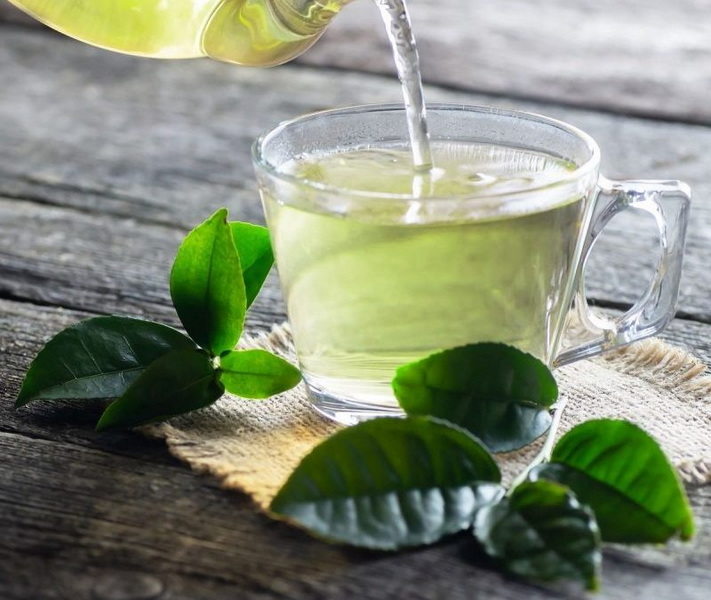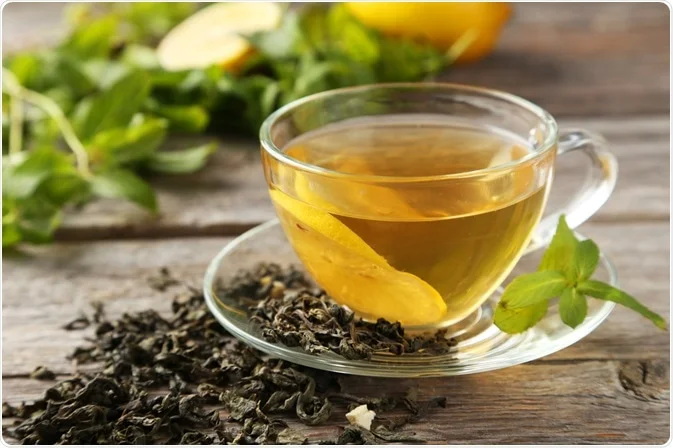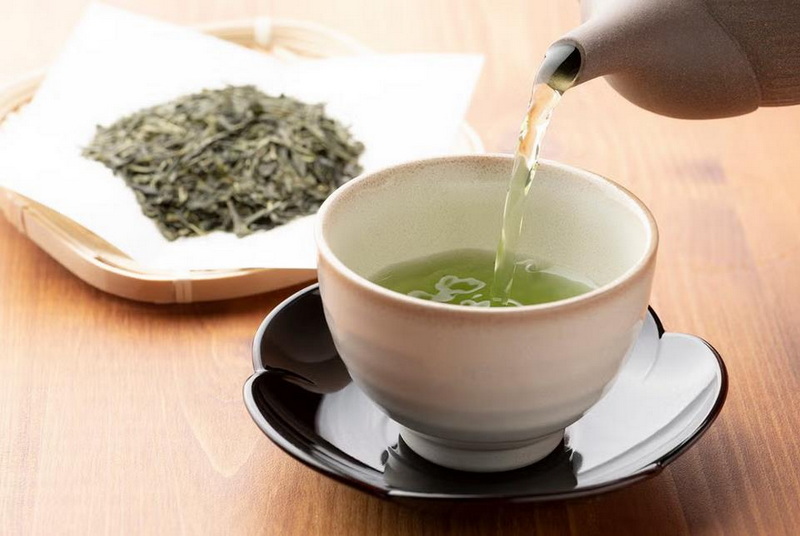Content Menu
● Understanding Green Tea Extract
● The Caffeine Factor
● Potential Benefits of Green Tea Extract
● Taking Green Tea Extract at Night: Pros and Cons
>> Pros
>> Cons
● Best Practices for Taking Green Tea Extract
● Alternative Timing Options
● Potential Side Effects and Precautions
● The Science Behind Green Tea Extract and Sleep
● Green Tea Extract vs. Green Tea
● Dosage Recommendations
● Conclusion
● Frequently Asked Questions
>> 1. Can green tea extract help with weight loss?
>> 2. Are there any side effects of taking green tea extract?
>> 3. How much caffeine is in green tea extract?
>> 4. Can I take green tea extract if I'm pregnant or breastfeeding?
>> 5. How long does it take to see benefits from taking green tea extract?
● Citations:
Green tea extract has gained popularity as a dietary supplement due to its potential health benefits. However, many people wonder about the best time to take it, especially considering its caffeine content. This article will explore whether it's advisable to take green tea extract at night and discuss its effects on sleep, health, and overall well-being.

Understanding Green Tea Extract
Green tea extract is a concentrated form of green tea, containing high levels of polyphenols, particularly catechins. The most abundant and potent catechin in green tea is epigallocatechin gallate (EGCG), which is responsible for many of its health benefits[1].
The Caffeine Factor
One of the primary concerns about taking green tea extract at night is its caffeine content. While green tea extract generally contains less caffeine than a cup of coffee, it still has enough to potentially affect sleep[2].
A typical green tea extract supplement contains about 15-30 mg of caffeine per serving, which is significantly less than the 95 mg found in an average cup of coffee. However, individual sensitivity to caffeine varies, and even this small amount could disrupt sleep patterns for some people.
Potential Benefits of Green Tea Extract
Before we delve into the timing of consumption, let's explore some of the potential benefits of green tea extract:
1. Weight Management: Green tea extract may boost metabolism and increase fat burning[5].
2. Antioxidant Properties: The high concentration of catechins in green tea extract provides powerful antioxidant effects[1].
3. Heart Health: Regular consumption may help lower the risk of cardiovascular diseases[6].
4. Brain Function: Some studies suggest that green tea extract could improve cognitive function and potentially reduce the risk of neurodegenerative diseases[3].
5. Liver Protection: Green tea extract may help protect against liver damage and reduce the risk of liver disease[6].
Taking Green Tea Extract at Night: Pros and Cons
Pros
1. Convenience: For those with busy schedules, taking supplements at night can be more convenient.
2. Potential Sleep Aid: Some components of green tea, such as L-theanine, may promote relaxation and improve sleep quality[3].
3. Overnight Fat Burning: The metabolism-boosting effects of green tea extract could potentially continue working while you sleep.
Cons
1. Caffeine Sensitivity: Even the small amount of caffeine in green tea extract could disrupt sleep for sensitive individuals[2].
2. Increased Nighttime Urination: The diuretic effect of caffeine might lead to more frequent nighttime bathroom trips.
3. Potential Interference with Nutrient Absorption: Taking green tea extract with an evening meal might interfere with the absorption of certain nutrients, such as iron.
Best Practices for Taking Green Tea Extract
If you decide to take green tea extract at night, consider the following tips:
1. Start with a Low Dose: Begin with a lower dose to assess your tolerance, especially to caffeine.
2. Time it Right: If possible, take it a few hours before bedtime to allow the caffeine to metabolize.
3. Monitor Your Sleep: Pay attention to any changes in your sleep patterns or quality.
4. Consider Decaffeinated Options: Some green tea extract supplements are available in decaffeinated form.
5. Consult a Healthcare Professional: Always consult with a healthcare provider before starting any new supplement regimen.

Alternative Timing Options
If you're concerned about taking green tea extract at night, consider these alternative timing options:
1. Morning: Taking it in the morning can provide an energy boost to start your day.
2. Pre-Workout: The caffeine and catechins in green tea extract may enhance exercise performance.
3. Mid-Afternoon: This timing could provide a mid-day energy boost without significantly affecting sleep.
Potential Side Effects and Precautions
While green tea extract is generally considered safe, it's important to be aware of potential side effects and take necessary precautions:
1. Liver Concerns: High doses of green tea extract have been associated with liver problems in some cases[9].
2. Interactions with Medications: Green tea extract can interact with certain medications, including blood thinners and some antibiotics[10].
3. Pregnancy and Breastfeeding: Pregnant or breastfeeding women should consult their healthcare provider before taking green tea extract.
4. Caffeine Sensitivity: Those sensitive to caffeine should be cautious and consider decaffeinated options.
The Science Behind Green Tea Extract and Sleep
Research on the effects of green tea extract on sleep has produced mixed results. While some studies suggest that the L-theanine in green tea can promote relaxation and improve sleep quality, others point to the potential sleep-disrupting effects of caffeine[3].
A study published in the journal Nutrients found that L-theanine from green tea may help reduce stress-related symptoms and improve sleep quality in individuals with stress-related ailments[3]. However, this study used low-caffeine green tea, which may not be directly comparable to typical green tea extract supplements.
Green Tea Extract vs. Green Tea
It's worth noting that green tea extract supplements often contain higher concentrations of catechins and caffeine compared to a cup of brewed green tea. While a cup of green tea typically contains 50-100 mg of catechins and 30-40 mg of caffeine, green tea extract supplements can contain up to 375 mg of catechins and 60 mg of caffeine per serving[6].
This higher concentration means that the effects – both positive and negative – may be more pronounced with green tea extract supplements compared to drinking green tea.
Dosage Recommendations
The appropriate dosage of green tea extract can vary depending on the specific product and intended use. However, most studies have used doses ranging from 300-400 mg of EGCG per day[7]. It's crucial to follow the dosage instructions on the product label and consult with a healthcare professional for personalized advice.
Conclusion
While green tea extract offers numerous potential health benefits, the decision to take it at night should be based on individual factors such as caffeine sensitivity, sleep patterns, and overall health goals. For many people, taking green tea extract earlier in the day may be a safer option to avoid potential sleep disruptions.
However, if you choose to take green tea extract at night, start with a low dose, monitor your sleep quality, and consider opting for decaffeinated versions. As with any supplement, it's crucial to consult with a healthcare professional before adding green tea extract to your routine, especially if you have any pre-existing health conditions or are taking medications.
Remember, while supplements can be beneficial, they should complement a healthy lifestyle that includes a balanced diet, regular exercise, and adequate sleep. Green tea extract is not a magic solution, but when used appropriately, it can be a valuable addition to your health and wellness regimen.

Frequently Asked Questions
1. Can green tea extract help with weight loss?
Green tea extract may aid in weight loss by boosting metabolism and increasing fat oxidation. However, its effects are modest and work best when combined with a healthy diet and regular exercise[5].
2. Are there any side effects of taking green tea extract?
While generally safe, some people may experience side effects such as headaches, nervousness, or digestive issues. In rare cases, high doses of green tea extract have been associated with liver problems[9].
3. How much caffeine is in green tea extract?
The caffeine content can vary, but typically, green tea extract supplements contain about 15-30 mg of caffeine per serving. This is significantly less than a cup of coffee but may still affect sensitive individuals[2].
4. Can I take green tea extract if I'm pregnant or breastfeeding?
Pregnant or breastfeeding women should consult their healthcare provider before taking green tea extract. The caffeine content and high concentration of catechins may pose risks[10].
5. How long does it take to see benefits from taking green tea extract?
The time frame for experiencing benefits can vary depending on the individual and the specific benefit in question. Some effects, like increased alertness, may be immediate, while others, such as potential weight loss benefits, may take several weeks to become noticeable[5].
Citations:
[1] https://www.medicalnewstoday.com/articles/269538
[2] https://johnshopkinshealthcare.staywellsolutionsonline.com/19,GreenTeaExtract
[3] https://pmc.ncbi.nlm.nih.gov/articles/PMC5537891/
[4] https://www.alamy.com/stock-photo/green-tea-extract.html
[5] https://www.youtube.com/watch?v=kmlcjBJ05Sk
[6] https://www.healthline.com/nutrition/10-benefits-of-green-tea-extract
[7] https://www.drugs.com/npp/green-tea.html
[8] https://www.zhounutrition.com/blogs/the-greatness-files/green-tea-extract-q-a
[9] https://www.urmc.rochester.edu/encyclopedia/content?contenttypeid=19&contentid=GreenTeaExtract
[10] https://www.webmd.com/vitamins/ai/ingredientmono-960/green-tea






























